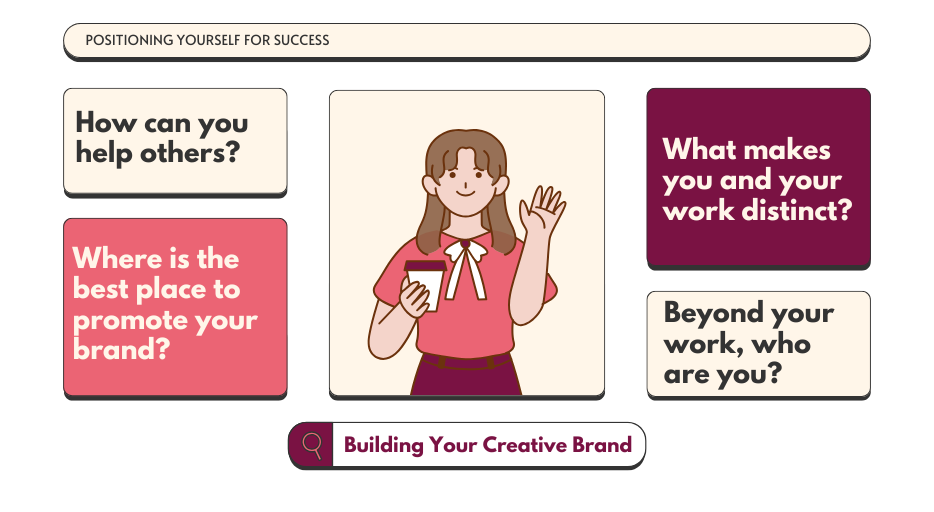You make the turn, and there you see it. “Welcome New Valiants,” a bold red sign featuring your school’s mascot. This isn’t just a school anymore. This is your new home. This is the next four years of your life. Welcome to Manhattanville College.
Freshman year is easily the biggest change most will have in their life. For the first time, students have a true sense of independence- everything is up to them. However, with great power comes great responsibility. Every freshman is going to be facing a period of turmoil as they enter this new period in their lives. Unfortunately, there isn’t a “one-size-fits-all” guidebook to surviving freshman year. Every student will have their own unique experience and must forge their own path. Thankfully, there are millions who have been in your shoes before, and you aren’t alone in your struggles. I have been very fortunate to talk to several members of the Manhattanville community in hopes of creating a starting guide to the freshman experience here at Mville.
To start, here’s a little bit about me. My name is Toni Marie, and I’m a commuter and a freshman. I’m a Communications major, and I’m planning on minoring in French. Outside of classes, I’m a Clark and Castle scholar, a ballet dancer, and I have my own blog. Despite being a commuter, I knew I wanted to get involved on campus, so I’m trying Touchstone, Manhattanville Video Project, and Commuter Council. Since this article is going to involve my personal experience, I felt the need to share a bit about myself for a better understanding of my perspective.
Academics
Since the primary purpose of coming to college is all about education, it is fitting that we start the discussion with academics. The biggest difference for me personally has been the change in classroom style and content. Back in high school, learning was primarily in class and homework was for review. I feel that so far, my homework has mostly been to prep for class content, and class time is spent discussing topics more in depth and exploring new aspects of what you’ve learned at home. In terms of content, I find that all my classes are far more interesting and engaging than they were in high school. Granted, I transferred in some dual enrollment and AP credits so I’m not taking many gen-ed’s, but I love being able to have more say in what I’m learning. Furthermore, my professors are so kind, understanding, and reachable, which makes my transition even easier.
Clearly, I’m not alone. Freshman Sylvia Meyers tells she “love[s] all [of her] courses and professors this semester.” Yet, that doesn’t mean everything is easy. Freshman Jessica Valera tells that the most difficult part of her college transition has been “adapting to [her] classes.” After all, college is a completely different environment than high school, and depending on your learning style, it can be quite challenging to adapt in a short period of time. Junior Jon Cerini recalls that college “really hits youin the face… you can feel the sense of difficulty rise.” He told that he wasn’t fully adjusted from high school, which caused greater issues further down the line. How do upperclassmen recommend you adjust? I received a variety of responses, but all of them had the same message: put your classwork first, pay attention in class, and don’t be afraid to ask for help.
Friends
We’ve always been told that in college, you’ll meet the friends you’ll have for the rest of your life. It’s a statement with some weight, and to be completely honest, making good friends is no easy task. To be completely honest, making friends was one of the biggest fears for me. I was terrified that I wasn’t going
to make any real friends, but I got lucky. Most of my friends are residents, and one of my closest friends has opened her dorm to me every time she’s been around so I didn’t have to worry about finding a quiet, relaxing spot somewhere on campus. If I want to stay for lunch or an activity on campus, I know I won’t be alone for it.
The social experience can be quite hard, though. Trust me, I’ve been there, and college was probably the easiest time I’ve had making friends (which was quite a surprise). Freshman Hayden Abrahams says he “tried talking to some people during the year who resorted to sticking with other groups.” Freshman Sylvia Meyers said, “leaving my old friends and family has been really tough.” Freshman Bailey Murphy felt the same way, but also believes “the sense of community and the people at school have really made any feeling of being homesick, almost vanish.” As difficult as it seems at the beginning, upperclassmen have provided words of encouragement, all reflecting the idea that make friends is a long-term endeavor. Sophomore Sarah Blake says, “the friends I made my first few weeks of college weren’t going to be my friends a year later and that all the drama that happened would mean nothing.” Sophomore Lynassa Lugay advises that “having a large group of friends isn’t necessary, being a part of a community is extremely helpful for the transition between high school and college.”
“Free” Time
One of the largest differences between high school and college is clearly the amount of non-class time students have. With this, however, arises the big question of how to spend it. After all, there are an infinite amount of possibilities. Personally, I’ve chosen to put homework first to make sure I get everything done, then spend the rest of my time working with clubs or on personal projects. I’m also careful to make sure I have time to spend with my friends, and I still go to dance classes off-campus.
When I spoke with fellow freshmen, many said the free time was one of the best parts about coming to college. Yet, it was also a point of great struggle. Freshman Kayla Maguire said the “toughest part so far is finding time to get everything done that needs to get done. Between classes, working part time and friends, it has been hard for me to get into a schedule and manage my time efficiently.” Freshman Jessica Valera wishes she “had more help understanding that in college you need to manage your timebecause you will get a lot of free time.” Junior Jon Cerini admits he had his own issues with time management balance, but now tells freshman to “focus on what you have on your plate in front of you. Do you have a meeting with a professor in 10 minutes? Do you have an essay due tomorrow? Do you have to start studying for a test you have to take in 2 hours? Not to mention your [extracurricular] activities, work, etc. You must learn how to have that balance if you want to succeed.”
Technology
With college freedom comes the freedom to use more technology. After all, students can finally work in a format that works best for them. However, there are some clear guidelines we must talk about, as technology in the classroom is not an excuse to do whatever you want in class.
Unlike most high schools, mine was essentially tech-based. We were a school that tested Google products, so we used Chromebooks and the full Google Suite in just about every class except for some math classes. We were also, believe it or not, encouraged to use our phones in class to supplement the academic experience. Although some students would automatically think this would be a great opportunity to dodge class work and watch Netflix, part of the curriculum was about using technology responsibly. When I got to Manhattanville, I was shocked with the stark difference in technology use. Most of my professors prefer students to use pen and paper in class, which is something I really hadn’t done in years. Yet, in other class, technology is allowed, but some students are not sticking to classroom etiquette, and are becoming distracted from their work. Junior Jon Cerini has noticed the rise in this
behavior and finds that it’s “[c]ompletely distracting others around them trying to learn and listen. The other day I couldn’t pay attention because the kid in front of me was streaming a football game, it’s selfish.” If you’re doing something other than classwork on a device during class, you will be distracting others and affecting their education. Please respect others’ desire to learn in the classroom setting, and your own education, by either sticking to notes and classwork on your laptop or going back to pen and paper.
Commuting vs. Dorming
The college experience can also be different depending on whether you commute to campus or have a dorm. I, personally, am a commuter, and I love it so far. Even though I live at home, I still try to get involved on campus and spend time here. As I’ve mentioned before, I’ve made friends with residents who are always so kind to open their doors for me while I’m spending my downtime between classes, community service, and meetings. I’ve also joined three clubs and am involved with the Clark Center,which has helped me meet even more great people. My favorite thing about commuting is that I can choose how much I want to be on campus. Usually, when I’m on campus, I’m in classes, hanging out with friends, or going to different activities. My home time is my quiet work time. Freshman Kayla Maguire is also a commuter and tells me she commutes “to school 3 days a week and [loves] it. I get to save thousands of dollars by living at home and getting to come home to my family and friends that commute to school like me is very rewarding. There are also many ways for commuters to get involved and I like that Manhattanville is so accommodating to those who commute. There are a lot more commuters on campus than I thought so that means we all have something in common and I think that’s pretty cool.” For those who wish to be more involved in the commuter community, the Commuter Council meets on Wednesday’s from 2-3pm.
Living on campus is an entirely different experience. Sophomore Lynassa Lugay says that living on campus “allows for the opportunity to meet new people with all the activities that are offered,” which is especially helpful as a freshman looking to get more involved. I asked freshman Bailey Murphy to share what her experience was like in Spellman: “Dorming was something that I was definitely worried about in making such a drastic change in the college experience, but ultimately it has turned out to be one of my favorite parts. The sense of community it provides among the familiar faces makes it feel as though, as cliché as it may sound, ‘we’re all in this together’ and the challenges you may be facing are shared by nearly everyone else here.” Living away from home can be difficult, especially if it’s your first time living on your own. Thankfully, your RAs have been there before and are ready to help you with any situation that may arise, so you can be sure to succeed!
The Takeaway
Freshman year is going to bring a lot of change but take advantage of your newfound freedom and opportunity. Even as a freshman, there is so much you can do, and you can already get a feeling of what your experience is going to be like. Every freshman I spoke to said they were happy with their decision to attend Manhattanville. In less than a month of school, freshman Bailey Murphy tells the “things that I have looked forward to before I even arrived exceeded my expectations and has already helped me shape the person I want to become.” As for me, I’m beyond happy with my decision to attend Manhattanville, and even though it’s only been a month, I’ve already been finding so many opportunities to grow so hopefully, in four years and beyond, I can achieve my dreams.
Not everyone has such a clear sense of direction though, so how can you be successful this year? According to sophomore Sarah Blake, college “is about finding who you are, tak[ing] different classes that interest you. I didn’t know I liked Psychology until I took it Spring Semester freshman year and now
it’s my second major. Just keep trying new things [and] you may surprise yourself.” Junior Jon Cerini likes to use the quote “do something you’ll be proud of in two years” as a guiding conscious, and advises to “remember that you’re in college for a reason… take initiative to get a solid education and work hard to be the best person and student you can be.” Senior Thomas Hopkins reminds freshman to live in the present by enjoying the year, with an emphasis on “relaxing and going with the flow.” I believe sophomore Lynassa Lugay puts it best: “Don’t overthink everything… If you didn’t like how you were in high school, is this is the chance to change that. Either way this is a period of growth and learning about yourself.”
In the end, your college experience is what you make of it. A student who only goes to classes is going to have a very different experience than one who consistently goes to club meetings and events. A student who asks questions and builds a connection with the professors is going to have a much different experience than someone who does the bare minimum required. You get out what you put in, so if you want to have the best experience possible, don’t be afraid to get involved. Whether you’re a commuteror a resident, you have so many opportunities to try new things, make new friends, and grow, so make the most of it!
Originally written for Touchstone Newspaper (Manhattanville College), print edition.





Leave a Reply